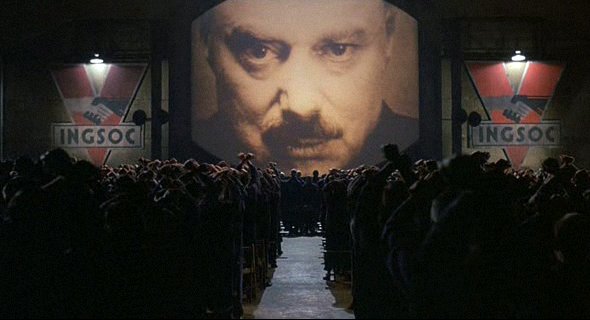After a slew of loud criticism, Facebook have rolled out new, more understandable privacy controls. At the core of the changes is what Facebook calls a more simple approach to privacy and a universal setting that will control access to data across the platform. Now, change your settings to ‘friends of friends’ and it will apply to all your interactions with Facebook. Also, applications and external websites will now have to ask permission for access to any sort of private data.
The only problem? It won’t matter.
Your Data Is Like Crack To Facebook
Facebook makes the bulk of its money in much the same way many web companies do: by serving ads. And Facebook serves a lot of them. In 2009, Facebook generated $500 million in revenue – and are likely on track to at least double that in 2010 – and the lion’s share of this came from advertising.
But as some have pointed out, unlike a company like Google, who make money by showing you ads based on things you’re already searching for, Facebook have to show ads that are created to generate interest.
Traditionally, these kinds of ads generate an incredibly low rate of click-through – less than 1% – because they’re often like guesses. Will visitor X like this ad? Who knows? Without knowing what visitor likes, there’s little chance they’ll happen upon an ad that intrigues them.
So lots of people have been trying to use the data created by social media to make those ads more specific and get those click rates up. After all, if you have access to what movies or restaurants or electronics a person likes, you can tailor ads to that person – which means way more clicks.
So, wanna guess how this factors into Facebook’s new approach to privacy?
Big Brother Zuck’s Business Plan
So Facebook is in a situation where the more integrated into your web life they are and the more open and public you are about sharing data, the more they know about you – and the more specific the ads they can show to you.
Put more simply: the more Facebook knows about your data, the better it is for their business.
Now, this has always been the case. But the new Open Graph is all about integrating Facebook into the broader web, detailing what you’re looking at and ‘liking’. Rather than just relying on what is going on in the semi-walled garden of Facebook, Zuck & Co. are now attempting to gauge, measure and record your behavior across the entire internet.
So by getting you to share you information about your life, Facebook has access to a huge amount of marketing data about their users demographics and interests. Or, as a friend less generously puts it, Facebook is a behavior harvest, intent on tracking its users’ movements across the web so that, when they return to Facebook, they will see ads supposedly suited to their interests.

Why Privacy is Bad for the Bottom Line
Of course, the more you choose to hide your personal data, or limit what certain websites can see, the less valuable you are to Facebook. As someone put it on Twitter the other day, to Facebook you aren’t a user – you are its inventory.
As a result, privacy and Facebook’s business model are at odds. It is in Facebook’s best interests to have your browsing habits, likes and interests as publicly accessible as possible because ads that tied to user interests will generate much more revenue. By contrast, it is the opposite of Facebook’s interests to allow you to hide or limit what you’re interested in because they will have to rely on generic display ads, which are much less profitable. So what’s best for Facebook is to ignore your privacy as much as it can and plow ahead.
This is why Facebook has a history of rolling out changes and then tweaking them slightly after an outcry. It’s also why the social network will continue to try and make the platform more and more public. When Mark Zuckerberg says the era of privacy is over, he is not describing a cultural change that has come about because of the web; he’s simply articulating his business plan.

Facebook and the Future of the Business
In the blog post announcing the changes today at Facebook, Mark Zuckerberg stated that “When you share more, the world becomes more open and connected.” What he failed to mention was that the more you participate in this ‘openness and connection’, the more you contribute to Facebook’s main revenue stream.
This overlap between disregarding ideals of privacy and a business plan also means that, as Facebook goes forward, it will continue to do as it has done in the past: it will change its service in order to protect and grow its revenue and then think about users’ concerns as an afterthought. And I think we can all agree: that’s good for no-one but Facebook itself.


With all due respect Navneet, I think you’re radically overstating the threat that Facebook poses to people and the morality of Facebook’s intentions. There’s really nothing to be fooled about. Facebook is in the business of making money. I don’t begrudge them that. They provide a valuable service to people and should be compensated. As long as they don’t violate their terms of use and provide some privacy controls, I really don’t get the big issue. If it’s personally threatening to somebody that the world knows that they like Justin Bieber’s music or their favorite book is Atlas Shrugged, they don’t have to post it on Facebook and avoid the problem entirely. I think that privacy is on the way out regardless of what Facebook does anyway as stuff like gets more prevalent and provides the world with new privacy challenges, and I think ultimately the world will be better off in the long run. Better ads, better interactions with friends, etc.
Mark Zuckerberg needs to do a better job communicating what’s going on though. No doubt about that.
I couldn’t disagree more regarding Facebook’s intentions and their threat to privacy. They have proven to act in the best interest of their bottom line at every turn. Facebook is a business, and yes, they are out for profit. And the larger they get and the more investors they have, the stronger this motivation will be.
They have removed privacy functionality that forces you to share information previously kept secret. The spin they put on their changes is borderline-deceit.
It’s all fine though. I don’t own Facebook. My only vote is with my feet, so to speak. After the horrible changes to privacy in December ’09 (where all my data and photos was turned public for a few days, and all my friends’ friends could see that I had an account and my posts, etc that were previously invisible, something you can’t even do anymore)… I deactivated my account. I suggest anyone else concerned with privacy and with a company abusing your personal data do the same.
Hopefully there will be some alternative that gives us control over our privacy. I’ve been looking at the Diaspora project, which seems to have promise, but who knows yet. Pretty telling, though. They has for only $10k, and now they are approching $200k. People obviously care about this.
Right? I know me and everyone I know cancelled our facebook accounts and went back to MySPace.
Lou
http://www.online-privacy.de.tc
Keep drinking that Kool-Aid.
Yes, the Facebook gang keep talking about how the world is becoming more and more open. In ten years I’m sure “openess” will be the law of the land. In the meantime, early “openess” adopters are easy targets for identity theft, stalking/harassment, and joblessness. I guess Zuckerberg thinks it’s all worth it.
This argument doesn’t actually make sense if you understand how Facebook ad targeting works. A user’s data doesn’t have to be public to target ads against it because the data is never actually exposed to the advertiser. If someone says they like biking and a bike company says they want to target their ads to bikers, Facebook can target the ad no matter what the privacy settings are on the user’s interests and never expose to the bike company any info about the user themselves.
So I fail to see any reason why more open privacy settings produce more advertising revenue and therefore why it’s fair or accurate to argue that Facebook’s changes are motivated by revenue?
If you would look at the big picture like the article asks you to, you would see that the whole deception is not predicated on what they can do with your data behind the scenes, but with how much they can fool you into believing how their great their ‘sharing’ vision is in order to lull you into NOT being suspicious of their ad network so they can obtain the most authentic social graph data possible. And, in that case their posing is extremely unethical and morally bankrupt. If they do fool you, ALL the data and consequently ALL the advertising offered on FB will have a much higher value.
On the other hand if Zuck and his lackeys dont avoid the PR firestorm that is nearly out of their control now … then their vision of just how MUCH they can wring out of their ad network will never be realized. You think all those telling IM’s of this punk in his college days isnt whats really the motivation for the future of his ‘vision’ then I say keep your head in the sand on the FB beach and enjoy what it gets you.
Who the hell cares if facebook is showing you more relatve adds? The point of the privacy settings is to prevent other people from seeing your info. I don’t think facebook has EVER said it wouldnt use your info for it’s ad targeting, regardless of your settings. What’s the big deal if facebook knows which adds to show you? They aren’t posting it on your profile for the world to see. The author is sadly disillusioned about the purpose of the privacy controls. They aren’t to keep facebook out. If that’s what you want, close your account or maybe, genius idea here, remove the personal info from your profile. Think about it.
I agree with Brett. The problem is not that Facebook is using behaviour data to serve adds.In fact, it would be beneficial to users to get more relevant adds. So please, Facebook, use my data for that. The problem is other parties getting access to my personal information. I don’t like it if any website can tell that I’m on Facebook and use my information. I’d like to be anonymous outside Facebook.I think I can at the moment, so no problem.
all your bases are belong to facebook
1) dont use facebook
2) fake data
3) your an idiot and are perfect target for ads
I honestly believe that Zuckerberg is the peter principle in action. He had a great idea for a website but is a moron when it comes to making business decisions. The biggest threat to his business is himself and we are seeing that over and over again. Dude needs to let an adult take over Facebook and show him how to manage a business and make decisions that you don’t have to eat crow over. How many mea culpas will it take before he runs all this business potential into the ground?
I almost bought it, till I saw the Like button and the hypocrisy blew me away
here’s what I do, and I promise it works.
don’t click on ads unless you’re interested in buying something.
it’s that easy!
This is absolute BS. I couldn’t care less if Facebook knows what websites I’m looking at or what music I like. I would prefer to see ads that pertain to my likes instead of random crap I don’t care about. What harm is facebook doing to me by wanting to know what I like. They are a business, a quite successful one at that. Correct me if I’m wrong but doesn’t “Social Media” mean public connections. If your an anti social person then stay off of facebook and stand in corner like you probably did at your high school prom.
A largely agree, the only thing is that it’s not entirely clear that Facebook needed to throw their users privacy under the bus quite as much to get the “Like” button data harvest. My guess is most third party sites would have installed those buttons anyway, and FB internal stuff could have remained “Friends Only”. Even if they’ll ultimately serve up ads inside those FB “People/Friends Like This” boxes, like I think they will, the sites where this is served up would never need to have access to anything, they’d just get a revenue share similar to Adsense.
Good article.
Whether it’s true that the world IS becoming more “connected and open” or not — and whether that’s good for people or not — the REASON Zuckerberg is saying so has nothing to do with good intentions for society.
I sense that a LOT of people are missing that point, taking his assertions at face value rather than looking a level deeper at his motivations.
I wonder when facebook is going to hack into my new Dell Streak.
Well, I only use facebook for playing its Apps… I really don’t like a persons privacy being made available in public, especially when it comes to mine.
And what I really hate is when they tag you with a picture where you are not in it.
As a fairly newbie facebook user, I have noticed the following:
1) After about one week of use, I was asked to confirm my identity through my cellphone.
It failed (no verification code recieved).
2) One more week, and I can no longer log on to my profile, as I only face ssl.facebook.com/roadblock. I cannot get past this, as my country is not listed, and a bug on the page prevents me form entering my cellphone number.
So, why is this happening to me? Because I am not like “everyone else”. My email is not hotmail, gmail, yahoo, etc, and my birthdate is 1. January, I have zero “friends” at facebook, and have not put in much personal info.
This is the kind of society we will soon have, when more and more data is collected, stored, processed in the name of security. If you are a bit different from the cloud, you will be a lower class citizen.
So, facebook sucks, maybe try Diaspora instead?